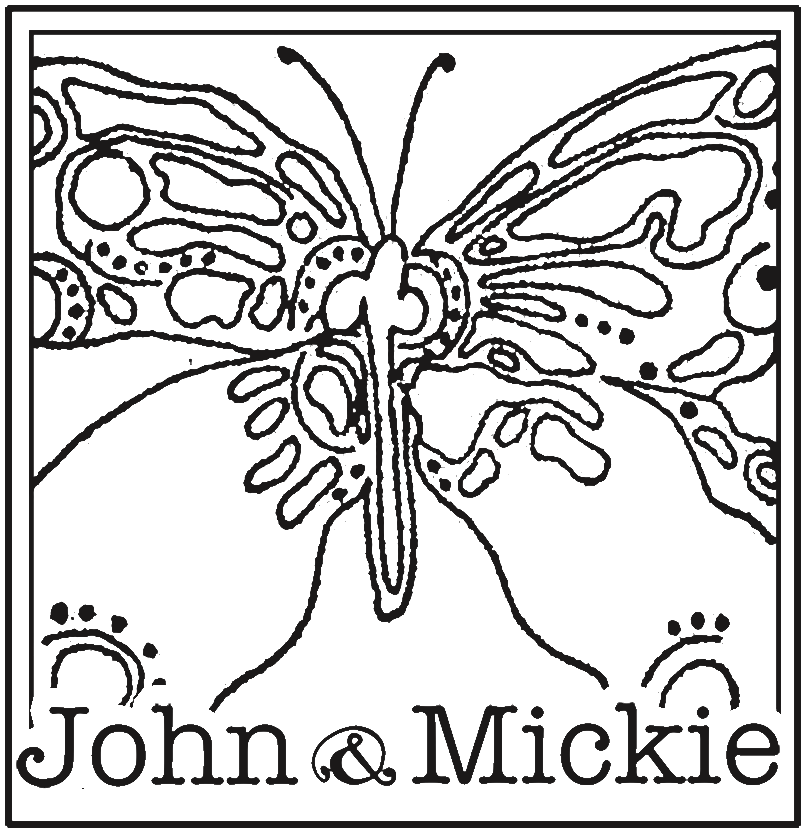
Established in 2014, John & Mickie has always been a part of the Responsibility Conversation. Experience in the fashion industry made Loraine aware of the waste and cost of fashion on a personal level, but the tragedy at Rana Plaza and Andrew Morgan’s Documentary "The True Cost,” about the rise of Fast Fashion and the impact of disposable clothing on our planet, sealed the deal. As a small independent fashion brand there was nothing else to do but manufacture clothes differently.
Early on John & Mickie was part of a design collective called Factory LA. All of the collective designers proudly used the term Slow Fashion to describe their work, so wanting to be the polar opposite of fast fashion. We were born into this awareness and more importantly the movement had started. Today it’s different. Most everyone is aware of the impact of garment manufacture on our planet. Responsibility and sustainability are now words that we all understand. What a difference a decade makes.
Here is what we do to Keep Our Foot Print Small:
To this day we still cut every piece of clothing to order. This means when we get an order for our pieces we cut only those pieces. We do that for our shops that carry our clothes as well as our customers who shop this site. We have no Inventory of clothing, we inventory fabric, which we can make into anything. This way we do not have extra clothes to go on sale or dispose or get rid of off price, or worse put them in a landfill, a common practice brands use to keep their perceived value. Now there are laws worldwide that make the practice of destroying clothes and putting them in a landfill illegal.
We make all our clothes out of washable natural fabrics, mostly we use cotton that is already stocked here in the United States. Our Indian Tapestries are hand block printed and sourced from the original Hippie Tapestry Merchants. One has been importing their textiles since 1929. We introduced a natural silk this winter 2023. We love it for its drape and warmth in the colder months. It is an exception and not washable. We recommend spot cleaning, brushing and dry cleaning with a natural dry cleaner the end of the season. It is important to help keep the petro chemicals out of the water supply. Did you know that every time you wash a spandex garment, spandex leaches out into the water supply. Sobering thought, right? I digress, our tapestries are best when washed in cold water and a natural detergent. This helps the piece last longer. We like the term forever clothes a lot.
We hand cut a lot of our clothes to maximize the pattern placement. That alone saves so much fabric that would end up in a landfill, and we are now adding zero-waste patterns to use each tapestry almost entirely.
We use our scraps. Whether through creative color blocked designs or donating to quilters, we make sure to give life to as much fabric as possible. Find out about our quilting donations here
We pack and ship with as little waste as possible. We use paper tape and tissue paper to our individual customers and our wholesale accounts. When we ship wholesale orders, we do wrap the entire order in a couple of plastic dress bags to keep the clothes dry in transit. The bags are then reused. We do think plastic is good for some things, like keeping clothing dry, never is it used only once and discarded. As of 2023 we are transitioning all our shipping supplies to EcoEnclose. A supplier of recycled and zero waste shipping supplies
New in December 2023 we are adding Treet Resale to our shop. We are excited by the idea of a trusted place for you to sell your pieces when you want to mix it up. We also plan on selling our sample lines in our Treet Resale Shop. Always at a very good discount.
We make our clothes in Los Angeles a few miles away from where they are created, further reducing shipping waste—we pick them up when they are ready!
We are so very proud to run a Responsible Independent Fashion Brand, and thank you for choosing to wear it.
Respectfully,
Loraine Ebbins

